Food Chain: A Convenient Excuse For Meat Consumption
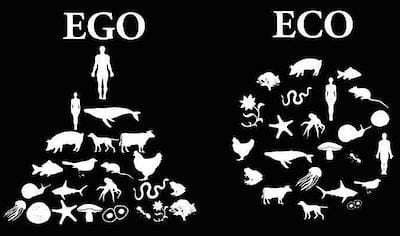
Meat intake’s environmental, ethical, and health effects provide a compelling case for reevaluating the food chain thesis
Non-vegetarians often oversimplify their justification for meat consumption by citing the food chain. While the food chain demonstrates a natural hierarchy of consumption, present-day ethical, environmental, and health perspectives justify human meat consumption in different ways. One may counter this reasoning by citing examples such as the following:
People do not need to follow the food chain (It is not survival)
While certain animals follow a specific food chain to live, humans have evolved beyond the need to rely on meat as a survival requirement. Unlike animals, whose lives depend on meat, people make moral decisions about what they eat.
- Elephants and gorillas
These massive, powerful creatures prove that even the largest mammals can have active, healthy lives free from meat because they are suited for plant-based diets. Given the availability of a variety of plant-based diets and supplements that can provide all of the required nutrients, we too have this potential.
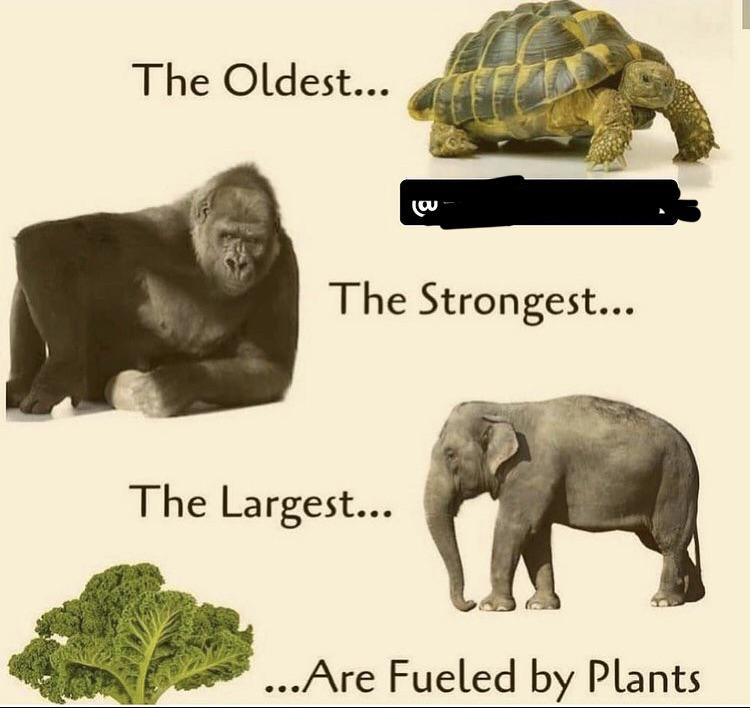
Modern agriculture makes meat consumption optional
Animals hunt and consume in nature because they lack alternatives or stores. But people have developed a system that makes a sustainable and readily available plant-based diet possible. Claiming “the food chain” as a defence runs against the reality of contemporary food production, in which humans do not have to murder animals to feed themselves.
- Plant-based substitutes
Plant-based delicacies like Impossible Burger and Beyond Meat have recently been much more widely available. These substitutes prove that in contemporary society, consuming meat is a choice rather than a biological need, as they resemble the flavour and texture of meat without including animal pain or exploitation.
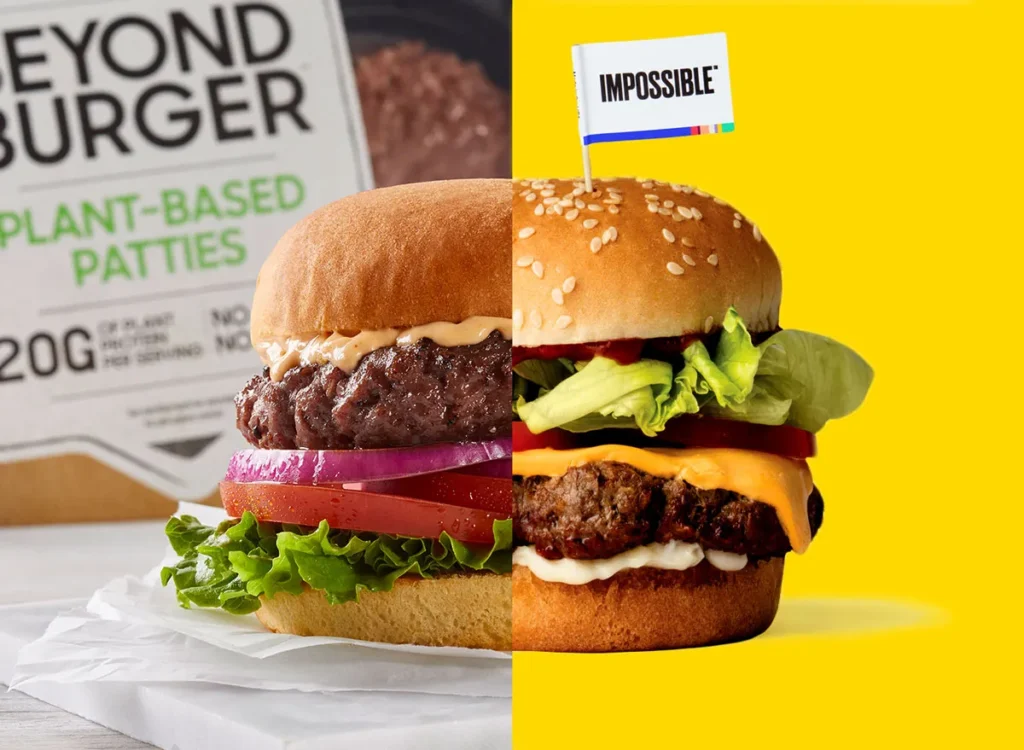
Environmental impact of meat production
The argument about the food chain ignores the environmental damage that industrial meat production causes. More than any natural food chain activity, raising animals for food greatly contributes to deforestation, water pollution, and greenhouse gas emissions, upsetting the equilibrium of the environment.
- Amazon rainforest deforestation
Cattle rearing is among the primary causes of destruction in the Amazon rainforest. The beef market fuels the deterioration of one of the most important ecosystems on Earth, demonstrating once again how actively people are upsetting the food chain on a global scale.
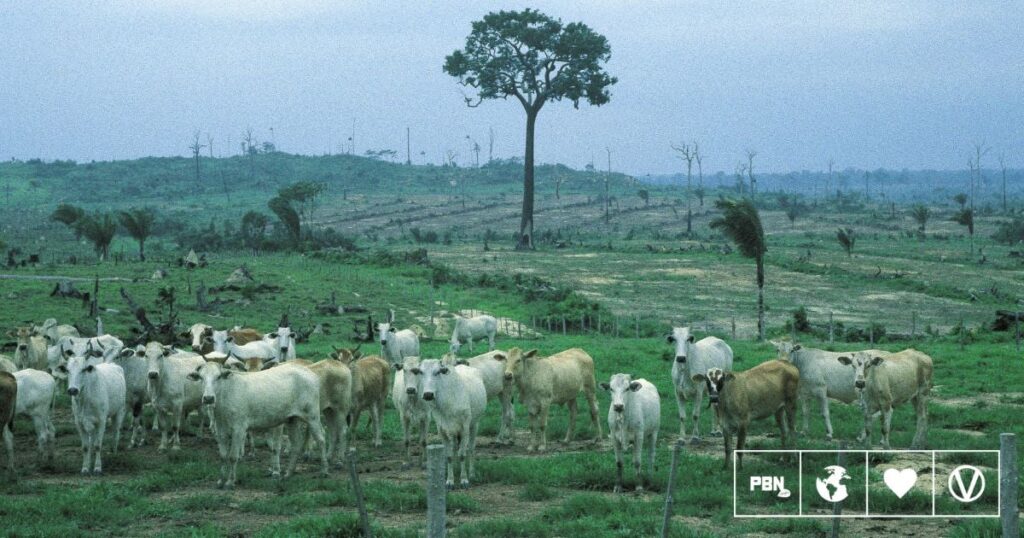
Ethical considerations and animal suffering
Unlike many wild animals seeking survival, people have moral choices about their food. Industrial farming, where animals sometimes endure appalling conditions, brutality, and inhumane slaughter, raises moral and ethical questions that the “food chain” ignores.
- American and Indian factory farming
Nations like India and the United States commonly practice industrial farming, rearing billions of pigs, cows, and chickens in small, cruel quarters. This is not like a lion chasing its prey in the wild; it’s a very artificial activity meant for maximum profit, not survival. Philosophers such as Peter Singer contend that referring to natural processes like the food chain cannot justify needless pain.
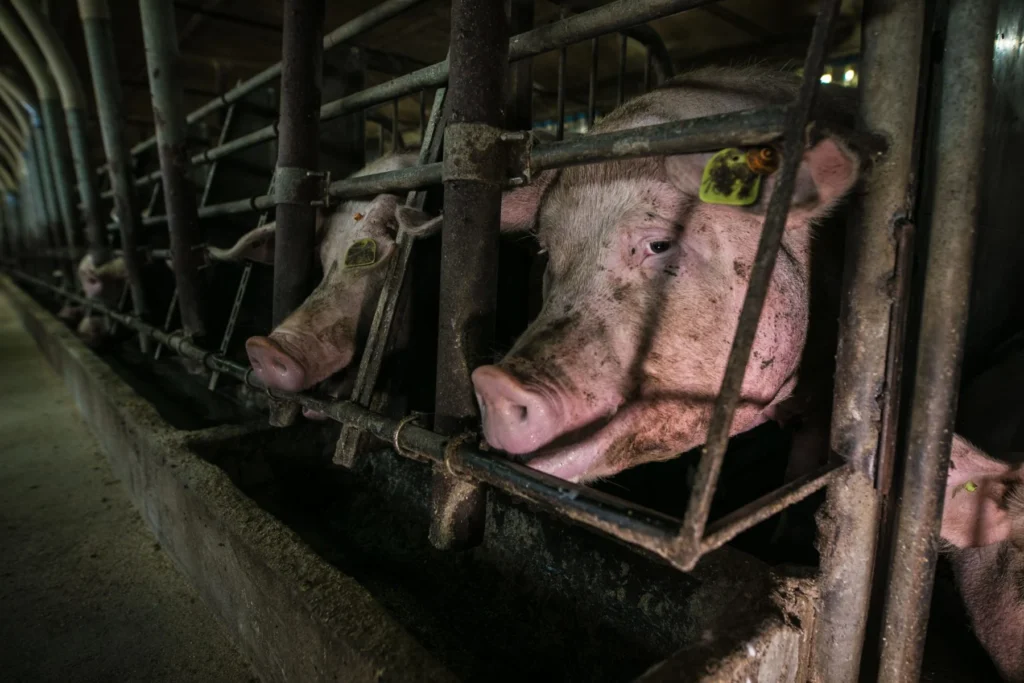
Nutritional and health advancements
Nutritional research has shown that a balanced, plant-based diet can provide all the vital elements required for optimum health, dispelling the misconception that people “need” meat for the best nutrition.
- Vegan athletes
Many elite athletes, including Lewis Hamilton (Formula 1), Novak Djokovic (tennis), and Virat Kohli (cricket), follow plant-based diets. They show that even high-performance people may flourish without meat; hence, it is not just unnecessary for life.

Human decision-making and intelligence
People have the intellectual ability to realise how their food decisions affect animals, their surroundings, and their health. Unlike instinct-driven animals, people may question whether the food chain should dictate their behaviour, especially in a world where alternatives are abundant.
- The evolution of veganism
The worldwide increase in veganism and plant-based diets, particularly in nations like the U.K., the U.S., and India, highlights how people are choosing to veer beyond the natural food chain. Driven by ethics, environmental issues, and health, this deliberate choice demonstrates that people do not have to mindlessly follow the food chain.
Conclusion
The argument that the food chain justifies eating meat is incorrect. Nowadays, society presents ethical and sustainable substitutes; humans have evolved beyond the necessity for meat to thrive. Meat intake’s environmental, moral, and health effects provide a compelling case for reevaluating the food chain thesis. As plant-based meals evolve and knowledge rises, adhering to the “natural order” of the food chain loses appeal and becomes even more outdated.




1 Comment